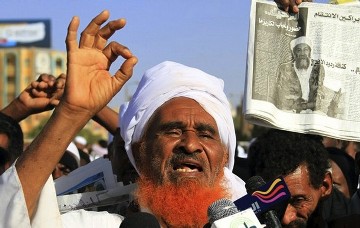Leader of Al-Qaeda in Sudan killed in Mali: reports
February 22, 2013 (KHARTOUM) – The leader of Sudan’s Al-Qaeda in the Land of the Two Niles group, Abu Hazim, was killed in an airstrike carried out recently by French warplanes on the positions of jihadists in northern Mali.

The SITE Intelligence Group, a website that specialises in tracking the online activity of terrorist organisations, was the first to reveal the news, saying it obtained a statement announcing his death on Al- Qaeda-linked internet forums.
The Long War Journal, another website dealing with terror groups, cited a US intelligence official saying that Hazim had moved to Mali to fight alongside Al-Qaeda jihadists at the beginning of the French-led operation launched last January to stop their advance towards the Malian capital.
The Sudanese jihadist took part in operations in the Philippines and Chechnya, as well as joining the fight against the Soviet army in Afghanistan. He also trained militants who participated in the “jihad” in Iraq and Somalia, said the statement announcing his death.
Khartoum-based newspaper Al-Sahafa said it obtained confirmation of his death from “informed sources”. The daily further added that the latter denied the existence of Al-Qaeda in Sudan, saying only there are small circles of radical youth in the country.
The Sudanese source told Al-Sahafa they conducted a dialogue with these youth after their return from Somalia and most of them renounced violence and extremist ideology.
Last January, the Sudanese Al-Qaeda group announced the formation of its student wing in the University of Khartoum, in a sign of growing extremist influence in the country.
The Agence France-Presse correspondent in the Malian capital, Bamako, last October reported that Islamist militants, including Sudanese, had been pouring into northern Mali to fight alongside the Malian jihadists.
A resident from Timbuktu, which at the time had been in the hands of radical fighters, said more than 150 Sudanese had arrived in the historic region.
(ST)
